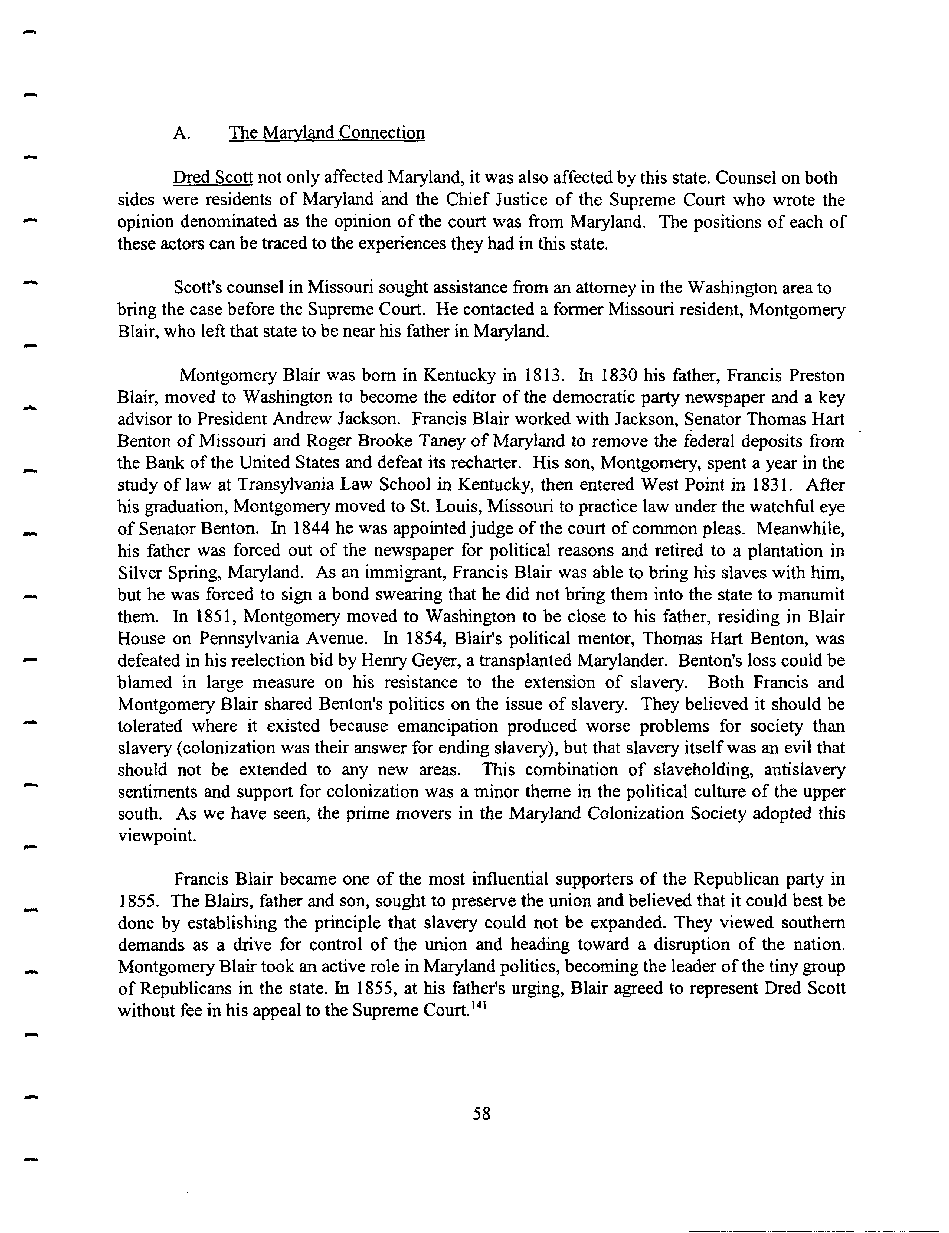|
A. The Maryland Connection
Dred Scott not only affected Maryland, it was also affected by this state. Counsel on both
sides were residents of Maryland and the Chief Justice of the Supreme Court who wrote the
opinion denominated as the opinion of the court was from Maryland. The positions of each of
these actors can be traced to the experiences they had in this state.
Scott's counsel in Missouri sought assistance from an attorney in the Washington area to
bring the case before the Supreme Court. He contacted a former Missouri resident, Montgomery
Blair, who left that state to be near his father in Maryland.
Montgomery Blair was born in Kentucky in 1813. In 1830 his father, Francis Preston
Blair, moved to Washington to become the editor of the democratic party newspaper and a key
advisor to President Andrew Jackson. Francis Blair worked with Jackson, Senator Thomas Hart
Benton of Missouri and Roger Brooke Taney of Maryland to remove the federal deposits from
the Bank of the United States and defeat its recharter. His son, Montgomery, spent a year in the
study of law at Transylvania Law School in Kentucky, then entered West Point in 1831. After
his graduation, Montgomery moved to St. Louis, Missouri to practice law under the watchful eye
of Senator Benton. In 1844 he was appointed judge of the court of common pleas. Meanwhile,
his father was forced out of the newspaper for political reasons and retired to a plantation in
Silver Spring, Maryland. As an immigrant, Francis Blair was able to bring his slaves with him,
but he was forced to sign a bond swearing that he did not bring them into the state to manumit
them. In 1851, Montgomery moved to Washington to be close to his father, residing in Blair
House on Pennsylvania Avenue. In 1854, Blair's political mentor, Thomas Hart Benton, was
defeated in his reelection bid by Henry Geyer, a transplanted Marylander. Benton's loss could be
blamed in large measure on his resistance to the extension of slavery. Both Francis and
Montgomery Blair shared Benton's politics on the issue of slavery. They believed it should be
tolerated where it existed because emancipation produced worse problems for society than
slavery (colonization was their answer for ending slavery), but that slavery itself was an evil that
should not be extended to any new areas. This combination of slaveholding, antislavery
sentiments and support for colonization was a minor theme in the political culture of the upper
south. As we have seen, the prime movers in the Maryland Colonization Society adopted this
viewpoint.
Francis Blair became one of the most influential supporters of the Republican party in
1855. The Blairs, father and son, sought to preserve the union and believed that it could best be
done by establishing the principle that slavery could not be expanded. They viewed southern
demands as a drive for control of the union and heading toward a disruption of the nation.
Montgomery Blair took an active role in Maryland politics, becoming the leader of the tiny group
of Republicans in the state. In 1855, at his father's urging, Blair agreed to represent Dred Scott
without fee in his appeal to the Supreme Court.141
58
�
|

